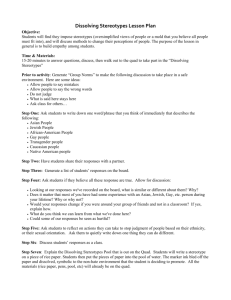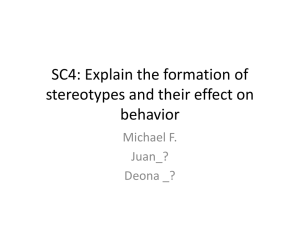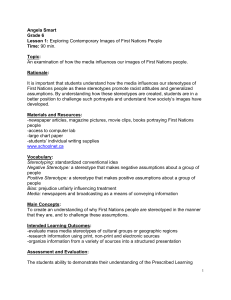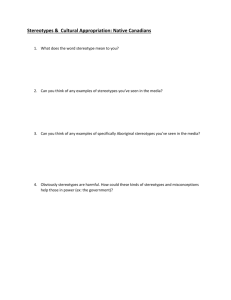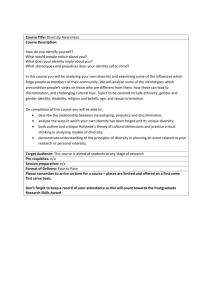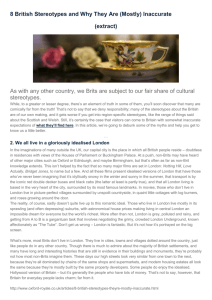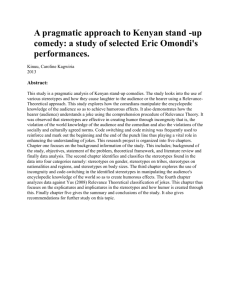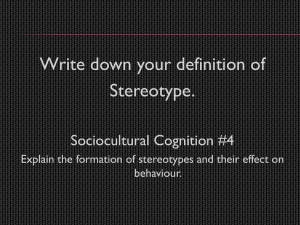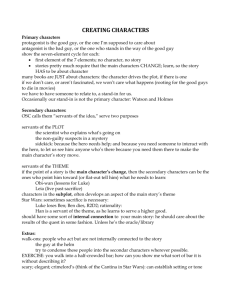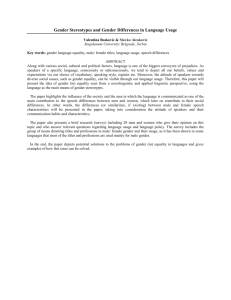A Study On Manifestation Of Stereotypes In Kiembu Metaphors
advertisement
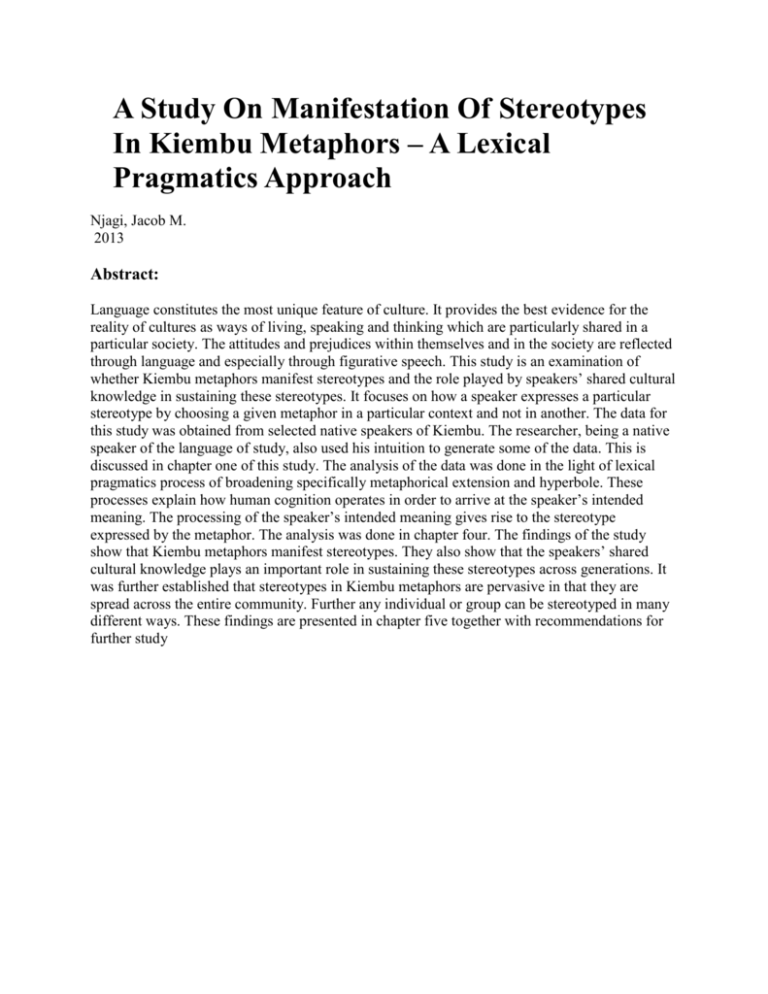
A Study On Manifestation Of Stereotypes In Kiembu Metaphors – A Lexical Pragmatics Approach Njagi, Jacob M. 2013 Abstract: Language constitutes the most unique feature of culture. It provides the best evidence for the reality of cultures as ways of living, speaking and thinking which are particularly shared in a particular society. The attitudes and prejudices within themselves and in the society are reflected through language and especially through figurative speech. This study is an examination of whether Kiembu metaphors manifest stereotypes and the role played by speakers’ shared cultural knowledge in sustaining these stereotypes. It focuses on how a speaker expresses a particular stereotype by choosing a given metaphor in a particular context and not in another. The data for this study was obtained from selected native speakers of Kiembu. The researcher, being a native speaker of the language of study, also used his intuition to generate some of the data. This is discussed in chapter one of this study. The analysis of the data was done in the light of lexical pragmatics process of broadening specifically metaphorical extension and hyperbole. These processes explain how human cognition operates in order to arrive at the speaker’s intended meaning. The processing of the speaker’s intended meaning gives rise to the stereotype expressed by the metaphor. The analysis was done in chapter four. The findings of the study show that Kiembu metaphors manifest stereotypes. They also show that the speakers’ shared cultural knowledge plays an important role in sustaining these stereotypes across generations. It was further established that stereotypes in Kiembu metaphors are pervasive in that they are spread across the entire community. Further any individual or group can be stereotyped in many different ways. These findings are presented in chapter five together with recommendations for further study
